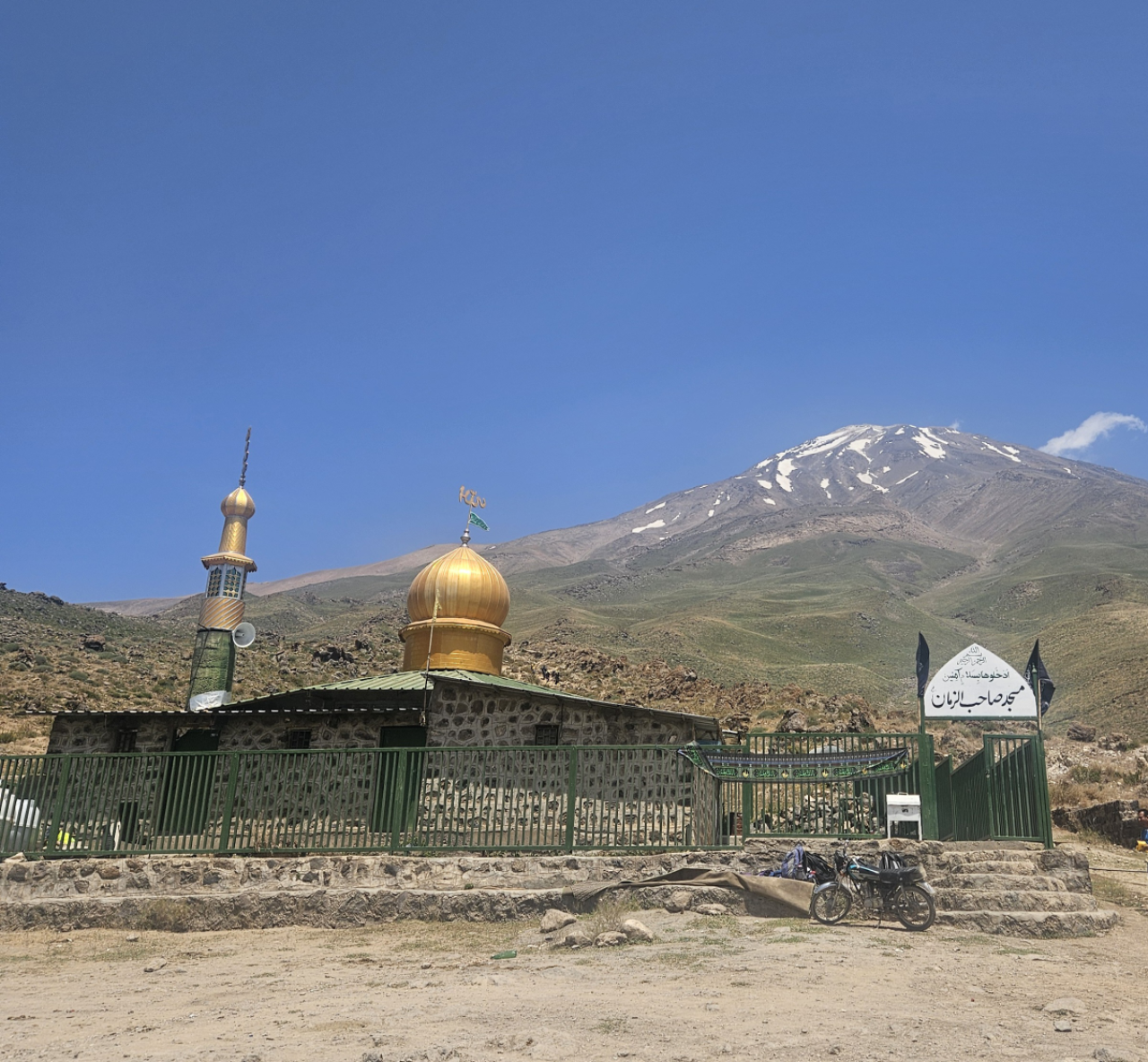Mt Damavand climb + Observations
In the past two weeks, I managed to visit four countries, one of which was Iran.
Iran is home to Mt. Damavand (5,609 m), the highest volcano in Asia, which is part of the 7 Volcanic Summits list. Since I was well-acclimatized after my Mt. Logan expedition last month, the climb was a nice and easy walk through the poppy fields with a short overnight stay at a 3,000 m camp.
I am so conditioned to suffering on difficult expeditions that I found this one rather boring. Isn’t it sad to think that pain should be a normal part of life? R. Messner failed to summit Damavand after he intentionally chose to climb it in winter, under adverse weather conditions (and later famously referred to it as ‘that little hill that defeated me’).
Below are my observations from the trip. See more pictures in the ‘777 Summits’ folder on my IG @okglobaltravels.
Discomfort vs unnecessary risk
To be honest, I would never have traveled to Iran if it weren’t for the mountain. I had so much anxiety, given the situation in that part of the world, scaring myself for weeks with all the things that could go wrong if I went.
I had to complete the 7 Volcanic Summits list, and it’s not like Mt. Damavand will ever move out of Iran. So, I took the plunge.
In reality, I found a wonderful, laid-back country with welcoming people and tasty food. But I felt constant anxiety while being there.
Every blogger, therapist, life coach, bartender, and taxi driver will say we have to get out of our comfort zone and be comfortable with being uncomfortable in order to grow.
You know what? Not all challenges are worth pursuing because of the stress they bring. And no, you will not ruin your life if you don’t embrace discomfort all the time.
The comforts of complacency
I observed that many people are hopeful for change now that there is a new president. When I asked what kind of change they wanted, I did not receive a clear answer.
There is an atmosphere of general unhappiness about the current state of things and the expectation that ANY change would be positive. Every country has its own vibe. This one is a country of people with smiling hearts living in complacency.
I remembered the most famous work on complacency and the morality of mediocrity, Nietzsche’s Thus Spoke Zarathustra. (The irony here is that Zarathustra was a Persian prophet). People become complacent because it is easy and comfortable not to have individuality.
What Nietzsche says you need to do to eliminate complacency:
-
Seek to define yourself.
-
You don’t have to carry burdens brought upon you by society; reject everything you are told (or say a “Sacred No”).
-
Become a blank canvas to paint the picture of your own life.
-
Explore ideas and create your own values (say a “Sacred Yes” to what you choose for yourself).
-
Strive to become the Overman—a better version of yourself, with values that seek to preserve humanity.
Women
I couldn’t skip this one. Being a woman in Iran is very confusing, and my list of observations could be quite long. Here are a few:
None of the women on the airplane were covering their heads, but once we disembarked, all of them put on their headscarves.
A woman must cover her head even in a vehicle, as anyone could report her, and the vehicle could be impounded and heavily fined. However, the younger generation of women is not covering their heads in public and instead wears scarves on their shoulders.
I was asked several times (by men) why I was traveling without a “husband” and how I was “allowed” to travel alone. However, women told me that things are changing for the better, as women can now pursue education and careers outside the home.
I gather this confusion is a sign of transformative change to come.
By choosing your niche you chose your destiny
I was asked to give a lecture at the Sports Medical Academy. I presented to sports doctors.
This was the first time in my speaking career that I wasn’t asked about fear of death, the dead bodies I encounter at high altitudes, or my friends dying in the mountains. Quite the opposite, they wanted to know how I survive and keep myself strong and healthy.
Perhaps it’s because, for doctors, death is a normal part of their work. We condition our minds based on our professions and don’t even notice how our approach to life changes as a result.
A mountaineer lives a festina lente lifestyle. A sprinter likes to make decisions quickly. An accountant prefers to analyze every data point before making a move.
Every profession allows us to develop our own superpower. Think about yours and email me your answers if you’d like; I always love to hear from my readers.
Keep climbing.
Popular posts on similar topic:
- Handling procrastination
- Surviving is just a habit
- How to not give up
- Goal-setting 101
- Life in the “death-zone” and reader Q&A
- Simple tips on how to reach your hardest summits – UC Berkeley Haas lecture
- I spent 20 min on top of Mt Everest. Here is what I learned about the meaning of life
- Thrive Global: Olga’s interview with Parveen Panwar, Mr. Activated
- Self-leadership lecture at UW Foster Executive MBA
- Mt K2 expedition notes
- Annapurna I expedition notes
- Mt Kenya expedition
About the author:
Olga Koroleva is a founder and CEO of Capital Brain, a company that builds AI-powered products. She is also a high-altitude mountaineer who likes to climb mountains with double-digit death rates, University lecturer, and a public speaker on leadership and risk taking. Sign up to her self-leadership newsletter at https://capitalbrain.co/blog/

